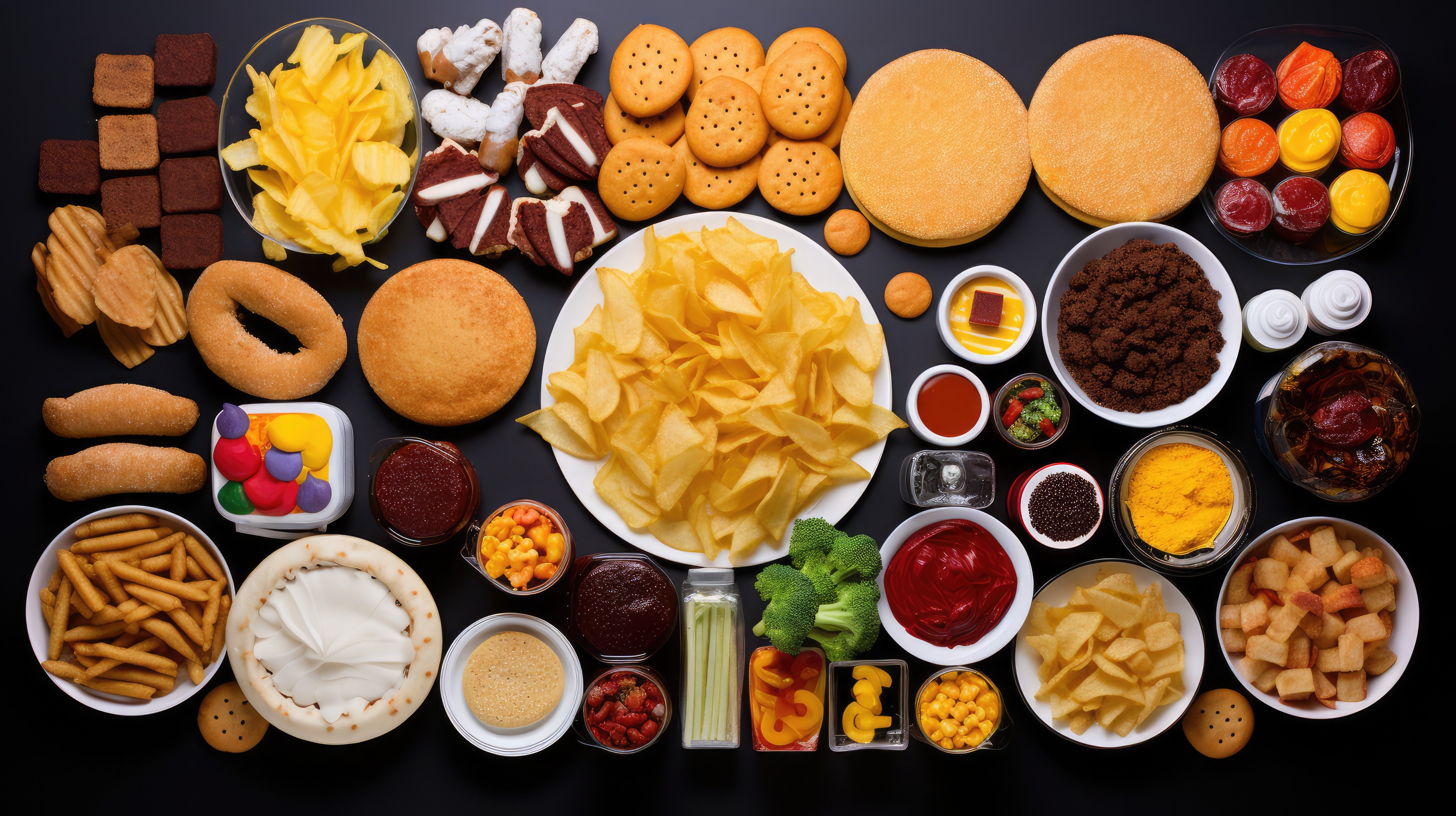Can Processed Foods Be Healthy?
We see a lot of dietary guidance emphasizing whole foods—and for good reason. When you think of generically “unhealthy” food, calorie-dense foods such as a fast food cheeseburger, a frozen TV dinner, or a pre-packaged snack cake may pop into your mind.
Not only are these types of foods high in calories, sugar, and fat, but they are all considered processed foods as well. Recently there has been much discussion around processed foods, and ultra-processed foods in particular. Studies have shown a diet primarily made up of these types of foods can be associated with negative health risks like developing diabetes or obesity.
With 70% of packaged foods in the United States being considered ultra-processed, many of us are eating this way. But what is classified as “processed” may surprise you.
What’s Considered “Processed”
Imagine you’re at the grocery store looking to buy foods that support your healthy eating goals. You grab your favorite flavor of hummus (garlic), a loaf of whole-wheat bread, a jar of organic almond butter, and some rice cakes. Satisfied with your choices, you check out and head home to enjoy what you just paid for—a new collection of ultra-processed foods.
But wait, aren’t all processed foods unhealthy? Is hummus really on the same level as a bag of chips? What if the hummus is homemade and not store-bought? There’s a lot going on here with processed foods for us to unpack.
In order to classify the many, many food and drink items available at the grocery store these days, researchers and government experts use a system known as the NOVA classification system. Developed by Brazilian researchers, The NOVA system groups based on four levels of processing:
- Group 1: Unprocessed or minimally processed foods
Includes natural foods such as fruits, vegetables, fungi, flour, (dairy) milk, and meat
- Group 2: Processed culinary ingredients
Includes ingredients you need to cook at home, such as sugars, oils, butter, and salt
- Group 3: Processed foods
Includes prepared foods you can buy at the store, such as cheese, bread, and salted nuts, plus at-home meals cooked with ingredients from groups 1 and 2
- Group 4: Ultra-processed foods
Includes packaged foods such as breakfast cereal, chicken nuggets, frozen pizza, and powdered meal replacement
Deciding what is considered an ultra-processed food often comes down to ingredients you wouldn’t have seen in your grandmother’s pantry—such as high-fructose corn syrup, hydrogenated oils, artificial flavors, preservatives, and other additives. If you can’t whip it up in the kitchen, it’s probably an ultra-processed food.
When you take a look at the NOVA classification system, you may notice that, well, almost everything you eat on a daily basis is considered to be processed food on some level. You may also notice that there’s nothing in here about the actual nutrients in the foods. NOVA is all about the process.
Do Ultra-Processed Foods Have a Place in a Healthy Diet?
Of course, not all food manufacturing processes produce unhealthy food items. Processing foods can help make them safer, cheaper, and more convenient for the end user. Canned chickpeas or microwavable brown rice are both technically processed but otherwise can be considered healthy ingredients.
At the end of the day, when deciding whether a processed food item is healthy, check the ingredients list. If it’s full of ingredients whose names you can’t pronounce (excluding spices and herbs)… maybe put it back on the shelf. When in doubt, turn to whole (natural) foods or make your own versions of common store-bought or takeaway food items.
Of course, there are times when you need to eat a granola bar for quick energy or want to get some extra protein in your diet with a supplementary powder—and that’s okay. Frozen meals may help you meet your calorie goals—and that’s okay. It’s all about creating a balance of foods that make it possible to stick to your healthy eating goals.
If you want to know more about ultra-processed foods and their potential impact on your health, talk to your healthcare provider or consult a registered dietician.
CON-1808-001 11/23

